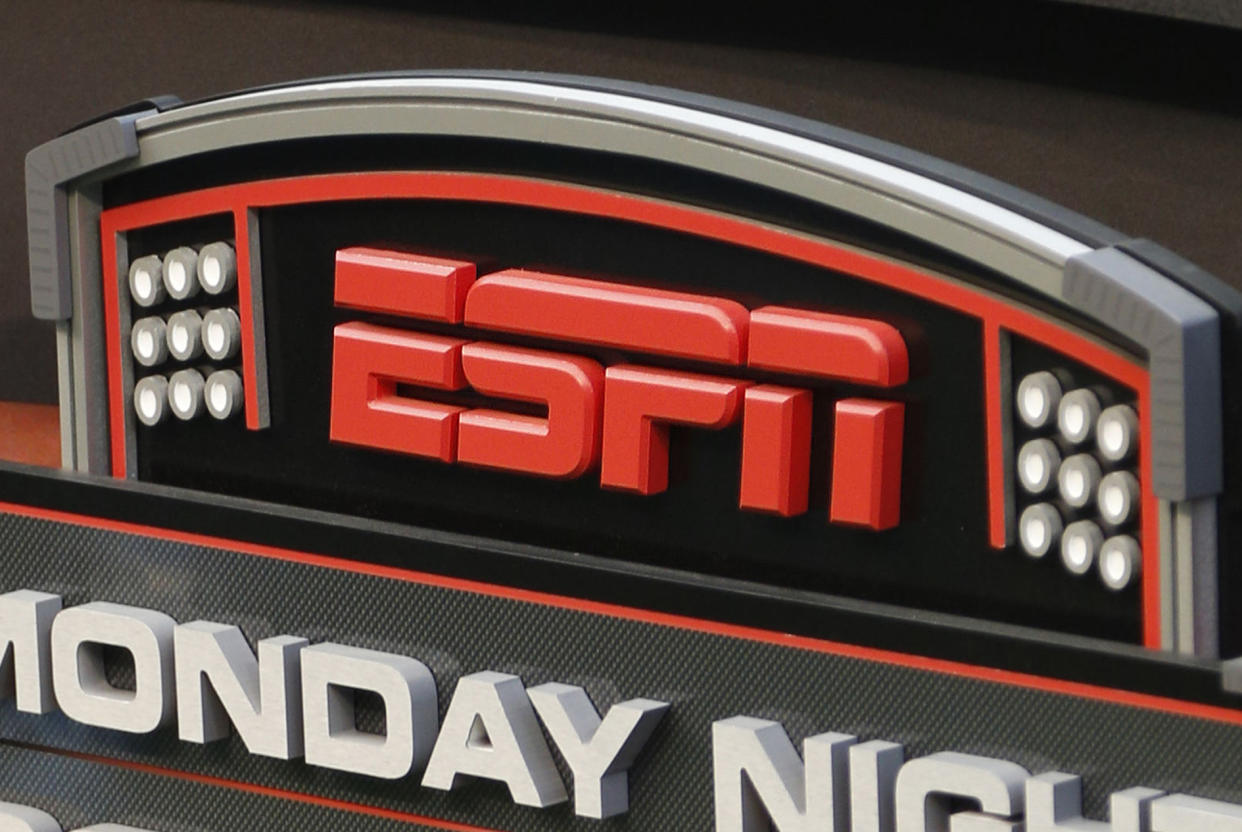Disney, Charter reach agreement in cable dispute, ending blackout

The standoff between Disney and Charter Communications ended hours before the first "Monday Night Football" broadcast of the new NFL season.
The companies announced a multi-year agreement on Monday that will restore ESPN and 18 other Disney-owned channels to Charter's nearly 15 million subscribers just in time to watch Aaron Rodgers make his New York Jets debut against the Buffalo Bills.
As part of the deal, Charter gained the ability to provide streaming services Disney+ and ESPN+ to select Spectrum customers. ESPN's yet-to-be-unveiled direct-to-consumer service will also be part of the Spectrum service. In exchange, CNBC reported that Charter agreed to pay Disney higher annual subscriber fees.
"Our collective goal has always been to build an innovative model for the future," Disney CEO Robert Iger and Charter CEO Chris Winfrey said in a joint statement. "This deal recognizes both the continued value of linear television and the growing popularity of streaming services, while addressing the evolving needs of our consumers."
While it's common for carriage renewal disputes to drag on for weeks and to result in blackouts for unhappy customers, the Disney-Charter feud had higher-than-usual stakes. Charter billed the negotiations as a pivotal moment for the pay-TV model that the cable giant claimed must be fixed or abandoned.
In an 11-page presentation to investors titled "The Future of Multichannel Video: Moving Forward, Or Moving On," Charter claimed to have "reached the point of economic indifference" with the cable TV business model. As if to prove it wasn't bluffing, Charter actively encouraged its Spectrum cable subscribers to take advantage of a "special offer" to sign up for FuboTV or to stream with another cable provider.
In other words, Charter was willing to invite its own subscribers to get their cable service from a competitor to minimize any impact on its broadband internet business.
In response, Disney launched a social media campaign urging Charter customers to consider switching to Disney-owned Hulu + Live TV or another streaming service. Stephen A. Smith, ESPN’s most recognizable face and loudest voice, even tweeted Wednesday, “Bottom Line: YOU HAVE CHOICES!!! DIRECTV Stream, Hulu + Live TV, YouTube TV, Sling, Fubo, are all available. Just download the app and sign up with no service call.”
In many ways, the TV industry has been building to this moment for years as a result of a harmful cycle that content creators and cable carriers can’t seem to escape.
The cable-quitting phenomenon started over a decade ago after Netflix and others launched successful streaming services. TV networks responded by pushing for rate increases to make up for lost revenue while simultaneously launching their own direct-to-consumer streaming services and putting some of their best content behind a paywall. Of course, that only further strip-mined the cable bundle, giving customers more incentive to cut the cord.
In its presentation to investors last Friday, Charter admitted that its “video profitability has been declining for years.” Video now “just doesn’t matter all that much” to Charter compared to other facets of its business, according to a research report from the respected financial advisory firm, MoffettNathanson.
“Yes, they probably do still make some money on video,” the MoffettNathanson report said. “But not much and they recognize that linear video is going to be a rapidly declining line of service under even the most optimistic scenarios.”
Those circumstances emboldened Charter to initially refuse to pay more than the $2.2 billion in programming costs it already shells out annually to Disney, which resulted in the blackout. Charter insisted it would accept Disney’s proposed rate increase in exchange for a package that would include both Disney’s traditional TV channels and streaming apps.
On Monday morning, just in time for "Monday Night Football," a compromise was reached.
